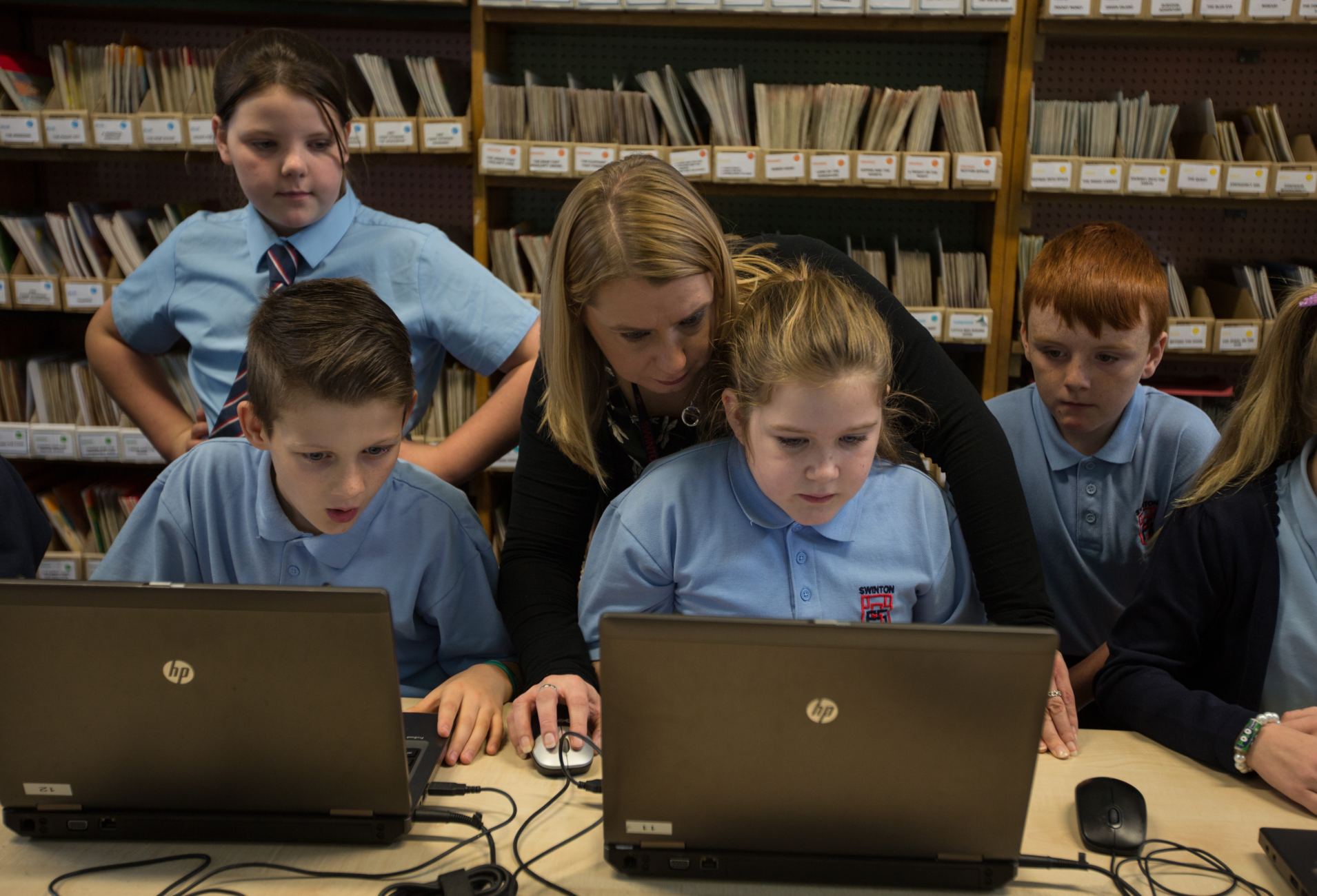

Closing the Digital Divide for Good
An end to digital exclusion for children and young people in the UK
The challenge of digital exclusion is not a new one. However, the outbreak of the Coronavirus pandemic – and subsequent school closures – shone a spotlight on the importance of digital access for children and young people across the UK.
Under the UN Convention on the Rights of the Child, of which the UK Government is a duty bearer, every child has the right to a quality education (Articles 28 and 29), to access information (Article 17) and to leisure, culture and play (Article 31). As children live increasingly digital lives, digital inclusion will only increase in importance to fulfil these rights.
As such, access to the digital world can no longer be seen as a luxury. Instead, digital inclusion must be seen as the cornerstone to ensuring social justice and equitable life chances for every child. Our new report sets out how the UK Government can realise its ‘levelling up’ agenda and end digital exclusion of children in the UK, for all and for good.
It is crucial that the Government equip all young people with the skills and experience they need to succeed, making a strong commitment to the levelling up agenda through digital inclusion.
Siobhain McDonagh, MP for Mitcham & Morden
What are we calling for?
The report sets out a 10 point action plan that the UK Government can and must implement to close the digital divide, for all and for good.
- Undertake a comprehensive review of online safeguarding and privacy guidance for educators and schools, updating the relevant policy accordingly.
- Undertake a comprehensive review of online safeguarding and privacy legislation for education technology companies, utilising the Online Safety Bill to further reduce the possibility of harm to children and their rights.
- Undertake a comprehensive and public review of COVID-19 emergency initiatives to gather lessons learned and inform best practice for future.
- Work with teachers and education staff to identify gaps in skills and support, using this to revisit national teacher training requirements and curricula, develop Continuing Professional Development opportunities for educators to strengthen their digital skills and pedagogy, and improve support to schools.
- Work with children, young people, parents, school staff, civil society, and technology providers to establish a shared definition of digital inclusion including a measurable minimum standard, and commitment to a regular review process.
- Establish a consistent, accurate and regular system of data reporting on the level of digital exclusion amongst our children and young people in the UK.
- Undertake research to better understand the drivers of digital exclusion and how to address these, with a focus on key data gaps including experiences of young people with disabilities and young people from ethnic minority communities.
- Develop guidance and resources to establish a local authority level digital inclusion tracker which identifies digitally excluded children and young people.
- Deliver a fully-funded long-term strategy for how the Department for Education will work across Government to tackle digital exclusion for all young people with clear actions, targets and timelines.
- Work with children, parents, school staff, social workers to develop a monitoring and evaluation framework for the long-term strategy that addresses the additional number of children online.
About the report
The UK Committee for UNICEF (UNICEF UK) and the Carnegie UK Trust’s new report, Closing the Digital Divide for Good: An end to the digital exclusion of children and young people in the UK sets out why and how the Government should continue its work to close the digital divide in England.
The report:
- Explores the pre-COVID-19 context, analysing and assessing the emergency response during the pandemic;
- Proposes a definition and measurement for digital inclusion; and
- Sets out a clear 10-Point Action Plan to end digital exclusion for all children, for good and for the benefit of every child.




